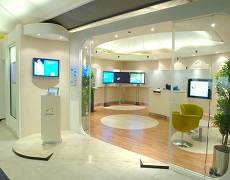September 4, 2013
EU Governments urged to maximise the potential of older workers
The rise in the number of older workers in the UK has been well documented, and the reason is clear, they are a much needed resource. Over the next ten years there are 13.5 million job vacancies which need to be filled, but only seven million young people predicted to join the job market in that time. And the UK is not alone; the EU faces significant skills gaps due to demographic change. But according to a new International Longevity Centre –UK (ILC-UK) report, Working Longer: An EU perspective, supported by Prudential, EU countries urgently need to skill up the older workforce, support more older women in work and address the particular health issues associated with employing older workers. (more…)


























August 1, 2013
Predicting the future of the office means looking at what is happening now
by Charles Marks • Comment, Facilities management, Furniture, Workplace, Workplace design
(more…)